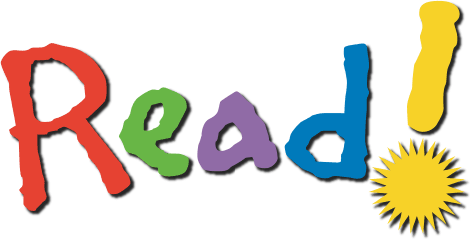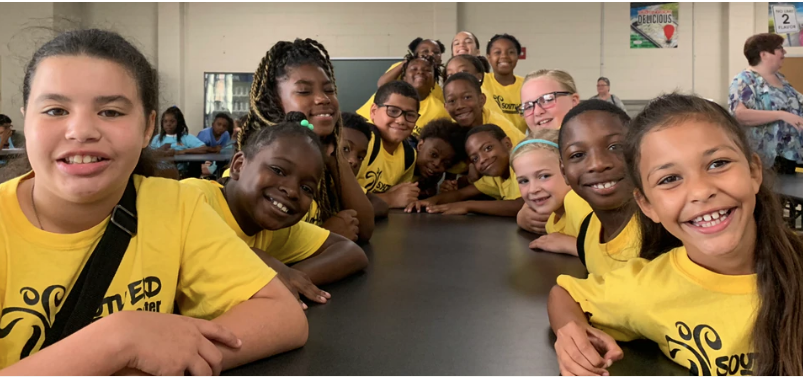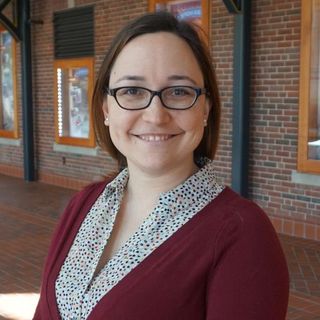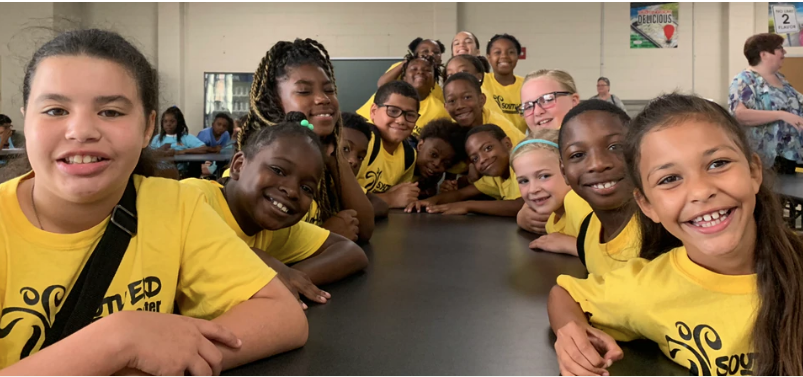Chrissy Howard is on a mission.
Together with scores of partners in the Springfield community, she hopes to one day see increasing numbers of the city’s schoolchildren graduate from high school, prepared to do whatever they want, whether it be college or otherwise, and to become active and engaged citizens wherever they choose to live.
A daunting task? You bet. Especially when you consider that less than half of the city’s third-graders (44% according to the 2016 figures) are scoring at or above proficiency in reading on standardized assessment tests and only 10.6% (also as of 2016) of Springfield’s kindergartners enter school with foundational reading skills.
For Howard, the mission is also a passion. She’s optimistic that the community will succeed as it bands together to better prepare children to enter kindergarten, equipped and ready to learn, and to then become reading proficient by the time they complete the third-grade. Each success in moving the needle forward, she says, will help children become lifelong learners through literacy and can help lift entire families out of poverty.
Just two weeks ago, she helped celebrate an achievement made by Springfield children enrolled in 13 summer programs who logged having read 27,919 times at 20 minutes a session. That’s 558,380 minutes, a number which will have grown significantly by summer’s end. Minor commitment, major impact, Howard notes.
“The minute count is cool because it’s something a child of any age can grasp,” she notes. The 20 minutes is among the key tenets of Reading Success by 4th Grade as research shows that children who read for 20 minutes every day are exposed to 1.8 million words per year and score 90% better than their peers on reading tests.
Howard is the new public face of Springfield’s Reading Success program. Launched 10 years ago by the Irene E. and George A. Davis Foundation, the initiative was most recently managed by Sally Fuller until her retirement last year. Following Fuller’s retirement, the Davis foundation in March identified the Springfield City Library as the new community-based home for the initiative. The foundation made a three-year financial commitment to support the initiative.
In its first decade, Reading Success received national attention for its work, with Springfield being named winner of the 2017 All-America City Award at the national Grade-Level Reading conference in Denver, Colorado, given to only 15 cities nationally, for its leadership role in initiating community-wide strategies that raised the level of third-grade reading proficiency from 33% in 2015 to 44% in 2016. Springfield also received All America City recognition in 2012, and was named a Pacesetter Community in 2012, 2013, 2014, 2015, 2016 and 2017 (or maybe each year from 2012 to 2017) by the Campaign for Grade Level Reading.
As a new decade begins, the Davis foundation is hoping the program can mark new successes.
“We felt strongly (the library) was the place that made the most sense within the community and had the greatest potential (for Reading Success) to work,” says Mary E. Walachy, executive director of the foundation. “We really wanted it in the community.”
The foundation also wanted to find a next-generation leader for the program and believes Howard is well situated to move the program forward. While Fuller’s expertise in marketing and communications ensured partnerships were built, now is the time to press forward with even more challenging work, Walachy says.
“What are the levers that are really going to move the needle on kids being kindergarten-ready,” she says. “The work (now) is really more about the skill of reading and what needs to happen within families and with kids. Chrissy is someone with a strong literacy background, who knows the work.”
Over the past month, Howard set out on a “listening tour,” an effort to connect with the community-based partners who, over the past decade, signed on to support Reading Success. They include parent-teacher organizations in the city’s schools, daycare centers, nonprofits that provide preschool services and literacy programs, like Square One, the YMCA and the Gray House to name a few, and individuals, all of whom are committed to the cause of literacy and to seeing Springfield’s schoolchildren succeed in the classroom and in life.
“I’m listening to people and trying to understand what they see the needs are. Do they see a sense of urgency around this?” Howard says. She goes to each meeting with no preconceived notions, no intent to tell anyone how things should be done nor what they should do. She does bring a rich platform of experiences that make her enthusiastic about the work ahead.
Howard’s earliest memories of reading as a child are with her mother, who, along with sharing books, would also read the newspaper aloud at the dining table each morning, inspiring her daughter’s curious mind and encouraging her to read to learn about the world.
Howard grew up in Chicopee and graduated from Chicopee Comprehensive High School before heading off to Wheelock College in Boston. As she entered Wheelock, she wanted to become a preschool teacher. “I had been working in a daycare center part-time. I was thinking this is my thing. I really love it. This is it,” she remembers.
Not so fast, though. She wound up studying math and science and majoring in elementary education. By the time college graduation rolled around, still without plans nor a job, Howard mused, “Maybe I’ll go to Harvard.” She applied and got accepted into an education master’s degree program focused on learning and teaching.
“In hindsight, I think I have an uncanny ability to explain thing in ways people can understand,” Howard says. After Harvard, in no particular order, she spent three years as an elementary school teacher in the Springfield Public Schools, went back to school to earn a certificate of advanced graduate studies in urban elementary education at Simmons University, was an instructional coach and principal at a charter school in Worcester, got married, started a family and moved back to Springfield.
Her work experience, Howard believes, helps her connect with teachers at all levels. Her personal life as wife and mother of two young daughters, who are 5 ½ and 1 ½ , means she can “really, really” connect with families on issues like those related to women in the workforce and equity in childcare.
“As I’m listening to people, (childcare) is a huge barrier for families and for women to be able to enter workforce,” Howard says. “If I didn’t have my parents and family around, I would always worry about the quality (of childcare), the prices…I understand where people are coming from.”
Howard also happens to be in the midst of her Ph.D. studies at the University of Massachusetts at Amherst. Her topic? How communities come together around literacy.
Moving forward, one of Howard’s goals is to convene a summit this fall to bring the partners together to address next steps.
“I’m encouraging everyone to think innovatively. I don’t shoot any idea down, and it’s (been) awesome,” Howard says. “This is about the community coming together. We together will establish goals. I’m not supposed to have the answer; I am here to facilitate. For me, it is really is about families...You cannot just change one life. You can change so many lives. You can change the life of a community.”
PS: If you’re looking for books to share with some of the children in your lives, Howard says her family’s favorites include “Brown Bear, Brown Bear” and “Ada Twist Scientist.”
